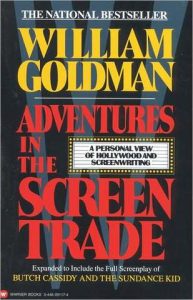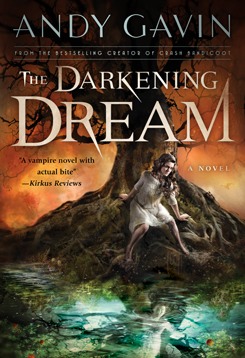 Title: Adventures in the Screen Trade
Title: Adventures in the Screen Trade
Author: William Goldman
Genre: Memoir / Writing Guide
Read: January, 2013
Summary: Fascinating and Terrifying
Having recently begun adapting my novel Untimed into a screenplay, I’m doing my usual slog through the relevant homework. What more can we say about William Goldman than: The Princess Bride (both the novel and the screenplay). If that doesn’t make you feel invincible, then take Marathon Man, All the Presidents Men, or Butch Cassidy and the Sundance Kid. And those are but a few of his produced films. Last year, I read the equally famous Save the Cat, which is a good book, but I marveled that the late author, while a hugely touted screenwriter, hadn’t written any good (produced) films. So not true of Goldman.
This work is fascinating, but it’s only about a third writing manual. It’s really three books: 1) a witty and insightful skewering of Hollywood, 2) personal stories from the trenches about each of Goldman’s pre 1982 films, 3) the Butch Cassidy screenplay, discussions of its strengths and weaknesses, and an adaption of a short story into a screenplay.
The skewering is caustic, hilarious, and even thirty years later, dead on. Goldman is famous for his “nobody knows anything” quote and how true it seems. His discussions of studio executives, agents, stars, and the intertwined nightmare of power is insightful bordering on clairvoyant. Most of the trends that he sees in motion in 1982 have continued and accelerated to bring us to the moderately dismal state of contemporary filmmaking (there are exceptions of course). Think both Entourage and the brilliant “The Day the Movies Died” GC article. Also, having worked with/for Universal, Sony, and Fox… well it was just all too funny and familiar.
The personal section terrified me. I hope to see Untimed make the leap to film, as it will make a great one, and it’s made vividly clear in Adventures that even a major screenwriter like Goldman is but a candle in the wind before the studio gale. This is made all the more peculiar by the fact that the screenplay is the single most important ingredient that goes into a movie. Film is a highly collaborative and commercial medium, but you really can’t make a good movie out of a bad script (unless you rewrite it to be a good script). You can however, make a lousy film out of a great script, or a hit film out of a bad one (Transformers anyone?).
Part three isn’t a good introduction to either writing screenplays or writing, but I sure did find it useful. Goldman hammers home many of the oft-repeated (but for a reason) messages of screenwriting, particularly his emphasis on structure. He’s a wonderful storyteller and his adaption example is so ridiculous, that it’s impressive to watch how he makes such a trite concept almost work.
If any of these topics fascinate you, give Adventures a read. Besides, Goldman’s such a good writer, he could make cereal-box copy a bestseller.





